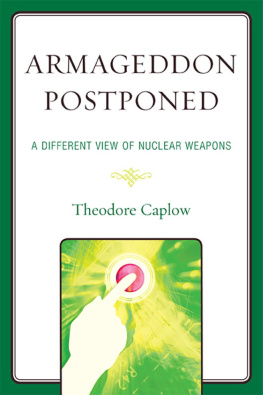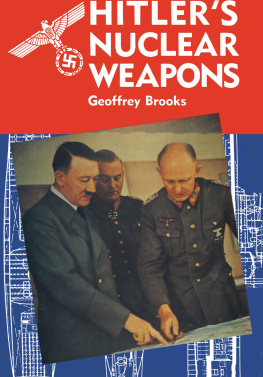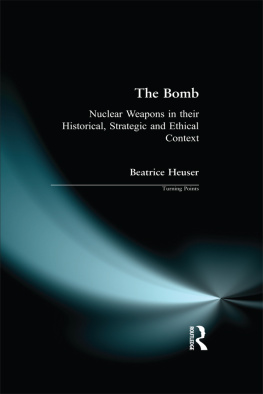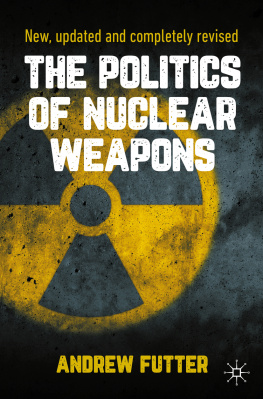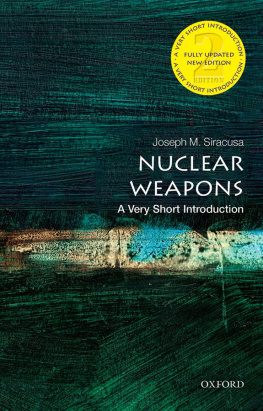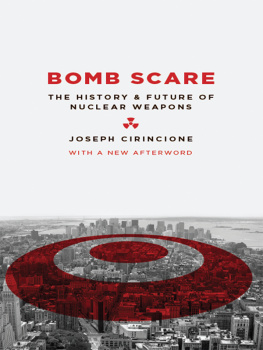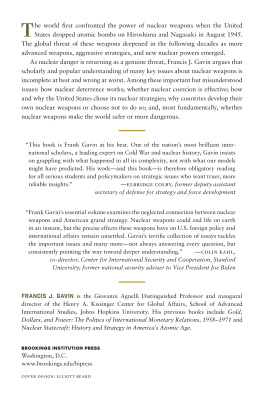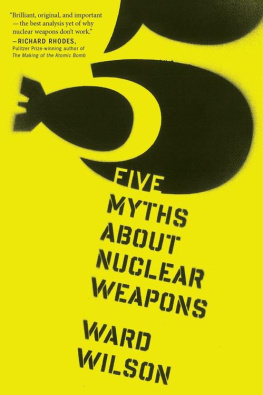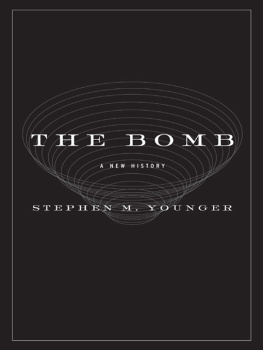About the Author
Theodore Caplow, Commonwealth Professor Emeritus at the University of Virginia, is the author of Peace Games (1989) and co-author of Sociologie Militaire (2000), Leviathan Transformed (2001), and Systems of War and Peace (1995, 2004).
Chapter One
The Old World Order
The world of 1900 counted six great powers. Britain, France, Austria-Hungary and Russia had survived the Napoleonic wars. Germany and Italy had been formed by the consolidation of smaller sovereignties during the nineteenth century. The United States and Japan were about to be promoted to great power status by the settlement of the Russo-Japanese war in 1905 Japan as the victor and the U.S. as the mediator of that important conflict. A set of minor powersBelgium, the Netherlands, Switzerland, Spain, Portugal, Sweden, Denmark, Serbia, Siam, Persia, Brazilmade up the supporting cast. Two ancient, ramshackle empiresthe Ottoman and the Chinese figured largely in the calculations of the great powers because of their tempting vulnerability.
The great powers were so called because each of them had the capacity for independent military action. Germany, France, Russia, Austria-Hungary and Italy had large conscript armies. Britain, Germany, France, Italy, the United States and Japan had powerful navies. Each of the minor powers had a sizeable army and several of them sported colonial empires.
The constant purpose of every great power was to prevent any other great power from dominating the international system. The emperor Charles V in the sixteenth century, Louis XIV in the seventeenth century, and Napoleon Bonaparte in the early nineteenth century, had come close to achieving world domination but each of these attempts had provoked the formation of a hostile coalition that eventually prevailed. As a prominent British historian wrote during World War I:
Four times in four centuries, have the Nation States of Europe been compelled to combine against the threatened domination of one of their number Against the fourth attempt to enthrall Europeand not Europe onlywe are still in arms.1
In the early years of the twentieth century, the contest for domination seemed to be in remission. The few European wars fought between 1815 and 1914 were short and relatively cheap. The only wars that produced heaped corpses and burnt-out cities during that long interval were the American Civil War, the Lopez War in Paraguay and the Taiping Rebellion in China. All three were outside the arena of great power confrontation. War was supposed to disappear from the annals of highly developed nations along with other barbaric practices inherited from the past: slavery and the slave trade, human sacrifice, judicial torture, female infanticide, the burning of witches and heretics, blood feuds, piracy, slavery and serfdom, child labor, imprisonment for debt, the castration of boy sopranos in Rome and the plundering of shipwrecks on the New England coast.
In 1899 and again in 1907, representatives of all the governments in the world that had significant military assets met at The Hague to finalize a general revision of the rules of war. By then, every one of them, even despotic states like Russia and backward states like Spain, displayed such liberal trends as the enlargement of the franchise, the improvement of workplace conditions, the softening of punishments for crime, the suppression of private violence and the expansion of social services.
The cruelties of war had been softened, too. The press gang, flogging and keel-hauling were no longer part of naval practice. The accepted rules of land warfare now prohibited the sack and pillage of captured towns, the killing of enemy wounded, the enslavement of prisoners, the taking of hostages, the massacre of noncombatants and the seizure of private property without compensation. Although European wars had long been fought under customary rules, those rules had been more concerned with the privileges of officers than with the protection of noncombatants, neutrals and common soldiers. Captured officers could give their paroles and move about freely until exchanged while their men were confined in stinking dungeons or casually slaughtered. Defeated commanders were allowed to keep their personal effects while captured cities were mercilessly looted.
The latter half of the nineteenth century and the opening years of the twentieth saw an international effort to reform the conduct of war by means of multilateral treaties. The revised standards created by these treaties were remarkably humane compared to earlier practices or even to current practices. The Declaration of Paris in 1856 prohibited privateering and defined the rights of neutrals. The Red Cross Convention of 1864 guaranteed immunity from hostile action to medical personnel, ambulances, dressing stations, hospitals, hospital ships and wounded prisoners. The Declaration of St. Petersburg in 1868 outlawed explosive bullets. The unratified Declaration of Brussels in 1874 enlarged the rights of prisoners of war.2
The grand finale of the international effort to soften the rigors of war came in two parts: the Hague Conferences of 1899 and 1907, originally convened byof all peoplethe Czar of Russia. The numerous treaties drafted at the 1899 conference were signed by the European powers, along with the United States, Japan, China, Persia and Siam. One of the 1899 treaties limited the use of military force for the collection of debts and prohibited the opening of hostilities without a formal declaration of war. Another banned poison gas. Another stipulated that prisoners of war must be as well fed, clothed and housed as their captors. Other Hague treaties covered spies, ruses, truces, capitulations and restrictions on the conduct of occupation forces. An especially ambitious treaty provided for the peaceful settlement of international disputes and established a permanent Court of Arbitration for that purpose.
When the conference was reconvened at The Hague in 1907, ten more treaties were signed by representatives of the twenty-eight nations that had significant military assets at the time. They covered the rights and duties of neutral states and their citizens, the status of enemy merchant ships at the outbreak of hostilities, the laying of submarine mines, limits on naval bombardment, the extension of Red Cross protection to naval forces, further restrictions on the right of capture in naval operations, an international prize court and an interesting rule that prohibited the discharge of projectiles and explosives from balloons or by other new methods of a similar nature. It was to remain in effect until the Third Hague Peace Conference, which was never held.
The Hague delegates took for granted that international war would soon be consigned to the dustbin of history. In the meantime, they aimed to civilize it. The project was not absurd in the light of what was then known. Since the Napoleonic wars, the nation-states of Europe had indeed adopted higher standards of conduct in their mutual relations. There were few ideological disagreements among them at the time and no outside power presented a military threat. The perennial European conflict between revolution and reaction and the newer conflict between capital and labor were only marginally connected to issues of war and peace.3
Might the Hague expectations have been realized if the decision-makers of 19141918 had made different decisions? The question is debatable. The negative argument is easier to make. The dynamics of the great power game had not changed. A great powerGermany in this instancesaw an opportunity to achieve world domination; the other great powers would reflexively resist. The great powers were firmly committed to a naval arms race while their recently formed general staffs routinely scripted scenarios for wars with every possible adversary. Their meticulous plans, tied to railroad timetables and factory production schedules, were inflexible. Indeed, the Germans found in 1914 that even the Kaiser himself could not interrupt a mobilization in progress.

